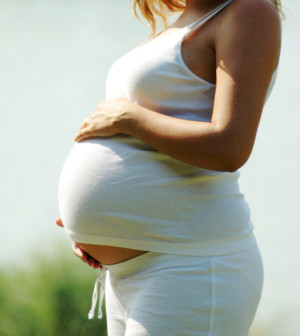- 10 Strategies to Overcome Insomnia
- Could Artificial Sweeteners Be Aging the Brain Faster?
- Techniques for Soothing Your Nervous System
- Does the Water in Your House Smell Funny? Here’s Why
- Can a Daily Dose of Apple Cider Vinegar Actually Aid Weight Loss?
- 6 Health Beverages That Can Actually Spike Your Blood Sugar
- Treatment Options for Social Anxiety Disorder
- Understanding the Connection Between Anxiety and Depression
- How Daily Prunes Can Influence Cholesterol and Inflammation
- When to Take B12 for Better Absorption and Energy
Probiotics May Not Shield ‘Preemies’ From Serious Illness, Study Finds

Probiotics don’t protect very preterm infants from serious complications, such as a bowel condition called necrotizing enterocolitis, sepsis or death, according to a new study.
The findings challenge previous research that suggested potential benefits from probiotics, the British researchers said. Probiotics are good bacteria found in certain foods and supplements.
The study included more than 1,300 very preterm infants. The babies were given either the probiotic Bifidobacterium breve or a placebo. This probiotic was used because it was the only one previously reported to show any benefit when the study began, the study authors explained.
Sepsis (a potentially life-threatening complication of an infection) occurred in 11 percent of the probiotic group and 12 percent of the placebo group, the study found. Necrotizing enterocolitis occurred in 9 percent of the probiotic group and 10 percent of the placebo group. Death before hospital discharge occurred in 8 percent of the probiotic group and 9 percent of the placebo group, the study revealed.
There were no safety issues associated with the use of the probiotic, the study authors said.
Results of the study were published Nov. 25 in The Lancet.
A previous study found probiotics reduced the risk of necrotizing enterocolitis in very preterm infants. But, the infants in that study had low overall complication rates. In addition, different strains of probiotics were included in the review, the authors of the new study explained.
“These two large trials suggest that, while probiotics are generally safe in the short term, they are not universally effective, and that different strains and combinations should be investigated separately,” Kate Costeloe, from Barts and the London School of Medicine and Dentistry, Queen Mary University of London, and colleagues said in a journal news release.
“The evidence from this trial does not support the routine administration of probiotics to the preterm infant, and the validity of combining trials of different probiotics to perform meta-analyses must be questioned,” the researchers concluded.
In an editorial accompanying the study, Thomas Abrahamsson, of the division of pediatrics at Linkoping University, Sweden, wrote: “These findings stress the fact that only probiotic strains that have been proven effective in clinical trials should be used in clinical practice.”
More information
The American Academy of Pediatrics has more about the health issues of premature babies.
Source: HealthDay
Copyright © 2026 HealthDay. All rights reserved.










